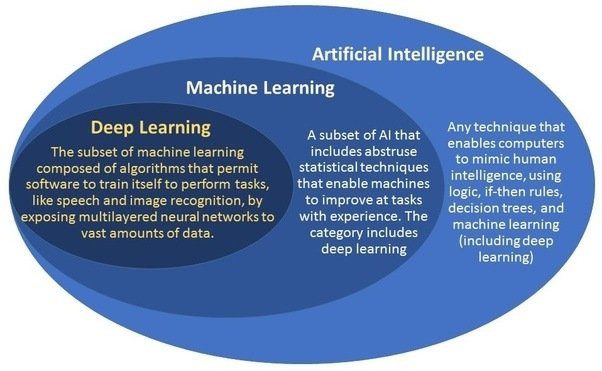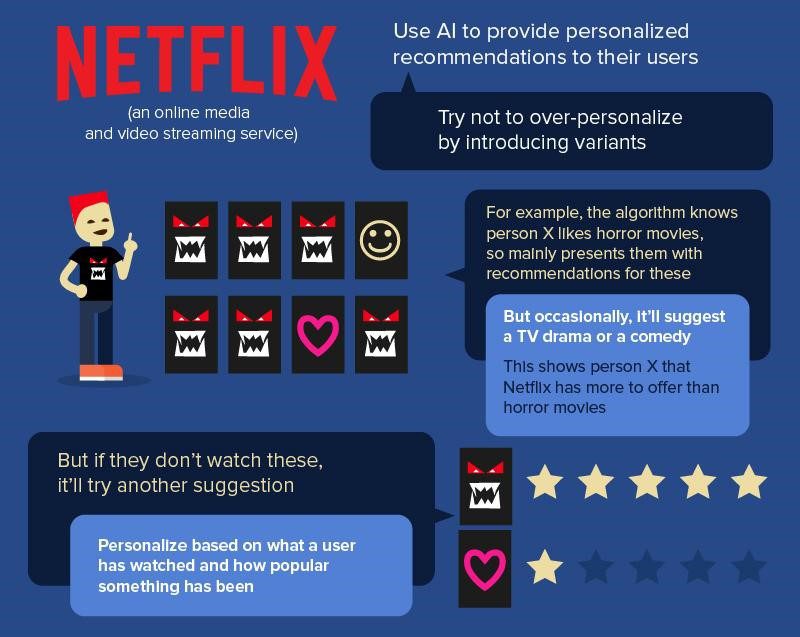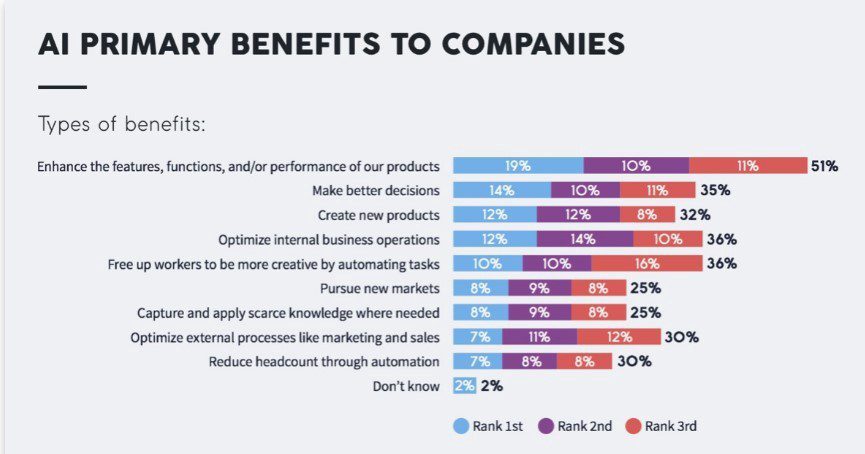What is Machine Learning?

Machine Learning the Future of E-commerce
In our previous article, we analyzed the future of personalization and customization in e-commerce. However, with machine learning becoming ever more integrated into our daily lives, it’s only fair to further discuss the role, significance, and the effect of this emerging technology in eCommerce.
The truth is, a lot has changed in e-commerce over the last few decades, and machine learning promises to change things even more. More so, the disruptive force of Machine Learning has barely scratched the surface of its full potentials in eCommerce. Well, thanks to digital advances and automation which pretty much gave machine learning an unparalleled solidifying edge to spur unsparingly; even against all the odds.
What could we make out of this revolution? Is the trend of machine learning and AI in e-commerce a trustworthy friend or a foe in the guise of a friend?
Read on; you’re about to find out ….
Just so we can all sail with the same wavelength, we’ll start by briefly explaining the meaning and difference between Machine Learning and Artificial Intelligence. Don’t worry; we won’t bore you with tech jargon you most probably aren’t interested in reading right now.
Artificial Intelligence Vs. Machine Learning

Artificial Intelligence (AI)
A branch of computer science that deals with writing computer programs such as machines capable of completing specific tasks by mimicking human cognition and solving problems creatively.
Machine Learning (ML)
A subset of artificial intelligence, a method used to improve performance through experience over a period of time. Machine learning is the method of today’s systems use to learn about you and the fundamental things that make you who you are. It looks beyond generalizations and characterizations on your age or gender and realizes that you’re a huge fan of romance movies, but only the ones that the protagonist is a villain with the same accent as yours.
Okay, since we’ve distinguished the difference between AI & ML, let’s jump right into the article properly.
What are the Notable Impacts of AI & ML in E-commerce?
If you search for AI online, you will stumble across hundreds of articles that predict a marketplace dominated by the use of artificial intelligence. Research by Business Insider suggests that as much as 85% of customer interactions will be managed without a human by as soon as 2020.
Why has AI had such an impact on the e-commerce industry, and why will this impact only grow? Well, the answer is simple: personalization.
Ever wondered why anytime you check a product online, then once you decided to flip out your phone to feed your eyes on Instagram, boom you’ll see the exact product being advertised to you on Instagram?
It’s simply ML and AI technologies that make such to happen.
AI impacts the way we shop online. The items we see under the “recommended for you,” “you might also like this product” or “customers who viewed this item also viewed” sections of retailer web pages, are driven by the analysis performed by machines, of data gathered about your online activities.

Advancements in AI and ML technologies are allowing retailers to achieve new and exciting feats in personalized customer experiences that increase profits. Those e-commerce retailers who ignore AI will most definitely end up playing catch-up for years. Indeed, the customer experiences already enabled through AI—including suggestions that accurately predict customer preferences, searches that result in items the consumer will actually have interest purchasing and much more—will soon become something consumers not only demand but expect.
More so, various online retailers employ intelligent chatbots that offer immediate, around-the-clock support to their customers, to varying degrees of sophistication. The AI technology behind these chatbots is continuously advancing, enabling AI to understand and participate in a conversation with a human.
How are these emerging technologies driving the change in E-commerce?
Machine Learning and Customer Experience
Machine learning allows e-commerce businesses to create a more personalized customer experience. Today, customers not only prefer to communicate with their favorite brands in a personal way, but they have come to expect personalization.
A study by Janrain revealed that 73% of customers are fed up with being presented with irrelevant content.
Artificial intelligence and machine learning offer retailers the ability to personalize each interaction with their customers, thus providing them with a better experience.
Through machine learning, retailers can reduce customer service issues before they even occur. As a result, cart abandonment rates should be lower, and sales should be higher. And unlike humans, customer service bots can provide unbiased solutions around the clock.
Machine Learning and Search Results
Improving search results offers huge payoffs for retailers. Machine learning can improve e-commerce search results every time a customer shops on the website, taking into personal account preferences and purchase history.
Instead of using traditional search methods like keyword matching, machine learning can generate a search ranking based on relevance for that particular user.
This is especially important for giants such as eBay. With over 800 million items listed, the retailer is taking full advantage of artificial intelligence and data to predict and display the most relevant search results.
Artificial Intelligence and Retargeting
Omnichannel is the new normal for retail, so you can expect artificial intelligence to use not only customers’ digital data, but also analyze their in-store behavior.
Once upon a time, security cameras were only supposed to keep shoplifters away, but soon, with the help of face recognition algorithms, you may start seeing ads online for that new fridge you checked out in store.
Visual Discovery Will Replace Keyword Search
The AI technology gives businesses a competitive edge and is available to developers or companies of any size or budget. A great example is Pinterest’s recent update of its Chrome extension, which enables users to select an item in any photograph online, and then ask Pinterest to surface similar items using image recognition software.
Pinterest Lens is a service that works like a Shazam for real-world objects: you point your camera at the desired item, and the algorithm will find it online. This idea is based on the fact that we don’t always know what we are searching for or how to describe it.

It’s not just Pinterest introducing new search experiences with AI. Shoppers are rapidly waving goodbye to impulse control as new software platforms that drive e-commerce websites create innovative visual search capabilities. As well as finding matching products, AI is enabling shoppers to discover complimentary products, whether it is size, color, shape, fabric, or even brand.
The visual capabilities of such software are genuinely outstanding. By first obtaining visual cues from the uploaded imagery, the software can successfully assist the customer in finding the product they desire. The consumer no longer needs to be shopping to see something they would like to purchase. For example, they may take a liking to a friend’s new dress or a work colleague’s new pair of gym Nike’s. If there is a visual, then AI enables consumers to find similar items through e-commerce stores easily.
Artificial Intelligence and Product Recommendations
Machine learning can be used to recommend e-commerce products according to various patterns in shopping behavior, which will help you increase your conversion rates. By analyzing customer data from different channels, the algorithm can identify behavior and purchasing patterns which can be used to predict what your customers want.
Personal shoppers have always been associated with high-end consumers, but thanks to artificial intelligence, everyone can take advantage of virtual ones.
Outdoor product company The North Face has built its own virtual personal shopper using the IBM Watson platform. The service uses customers’ vocal queries, shopping needs, and travel plans as input and recommends items that not only meet customers’ criteria but are also suitable for the location the customer plans to use them—even taking into account the weather forecast.
Artificial Neural Networks Will Guide Marketing
Neural networks can learn from experience, recognize patterns and predict trends, so they can be used to find out what people respond to, what should be changed and what should be eliminated from a marketing campaign.
Microsoft was able to increase direct mailing open rate from 4.9% to 8.2% by using BrainMaker, a neural network software to maximize returns on a marketing campaign.
Machine Learning Can Eliminate Fraud
The more data you have, the easier it is to spot anomalies. Therefore, you can use machine learning to identify patterns in data, learn what is ‘normal’ and what is not, and get notified when something is wrong.
The most common application for this would be fraud detection. Retailers are often faced with customers who buy large amounts using stolen cards or retract their payments after the items have already been delivered.
Machine Learning and eCommerce Targeting
Unlike in a brick-and-mortar store where you can talk to your customers to find out what they want or need, online shops are hit with huge amounts of customer data.
As a result, customer segmentation becomes extremely important for e-commerce, as it allows companies to adapt their communication strategies for every customer. Machine learning can be used to understand your customer’s needs and create a personalized shopping experience.
Machine Learning and Price Optimization
Machine learning algorithms can help you not only collect information regarding pricing trends, your competitors’ prices and demand for various items, but it can combine this information with customer behavior to determine the best price for each of your products.

Now that you’ve seen the possibilities of machine learning, how do you implement this in your e-commerce site?
Implementing Machine Learning in Your eCommerce Offerings
To get started, you and your IT team will need to put these things in place to get started on a machine learning implementation:
- A database or access to your existing database where the end-application can access the information it needs to know about your brand.
- The programming language, which can impact which services and partners are available based on their API.
- A description of the algorithm you want that is as complete as possible, including the problems or needs you want to be addressed.
- Examples of services or elements that you liked or operated similarly to what you want, so your developer has a yardstick for comparison.
- The size of your audience. For example, if you need to work with a large set of customers or are planning a distributed application, you’ll most likely end up with a Hadoop ecosystem, while smaller sets of data and uses can rely on Python, R, Java, and C++ for the machine learning engine.
Creating a list of definitions, goals, needs, and uses will help you build a plan to bring to a developer or to give to your internal team to figure out the next steps.
There are also a variety of machine learning programs that have broader uses, and you can define them as you go. Choosing an engine that operates like a decision tree will support A/B testing because you can feed it the ads or emails you’re using, information about the interactions or audience, and what you consider successful or unsuccessful results.
In this use case, an engine that works like a decision tree will eventually be able to learn what ads get people to click. By varying the coupon in your ad, for example, it can learn what dollar amounts or percentage off deals are more likely to lead to a complete sale. Eventually, you can use it to learn which deals are most likely to generate the highest relative sales value, and the engine can be used to set parameters for your marketing campaigns while adjusting coupons based on real-time results.
Conclusion
As you can see, there are a lot of exciting opportunities for machine learning in e-commerce. Many of these are either already in use or will be soon, so you can expect machine learning to become an increasingly important part of effective online retail.
If you want to wade into machine learning slowly, we’d recommend you begin with chatbots options on your website because there are a variety of existing projects you can build on for a more immediate turnaround.
How have you seen machine learning used in e-commerce? Are there any exciting new opportunities I didn’t include here? How do you plan to make use of machine learning in the coming years?

